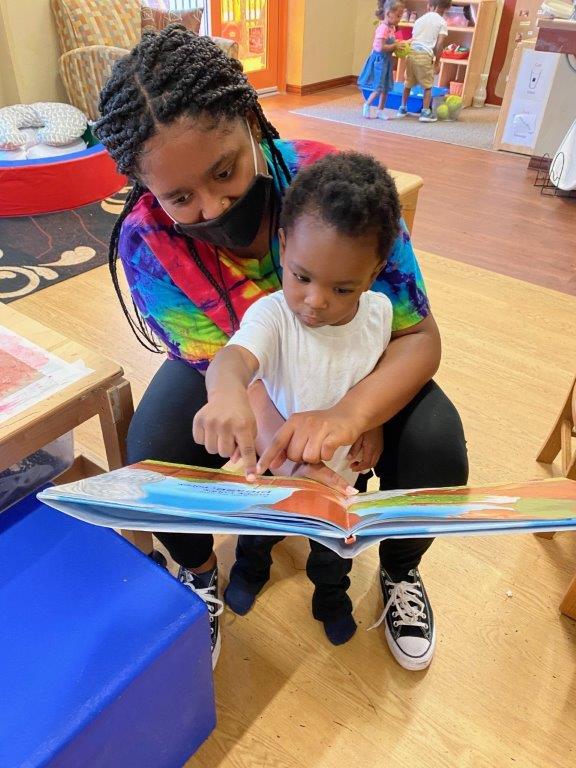
Throughout the school year, teachers have noticed the children showing an interest in learning Spanish; one of the teachers in this classroom is fluent in Spanish and has been able to expand upon their interest in several ways. These include labeling classroom materials, singing songs, reading books, and speaking to children in all Spanish when giving them directives such as “Siéntate” or “sit down.” Teachers have observed children who have developed excellent receptive Spanish language skills. One child, whose home language is English, was told “Tiralo a la basura,” upon which he walked over and threw his paper plate in the trash; a teacher told another child “Come tu pollo” at lunch to which he responded, “I did eat my chicken.” Many of the children can count in Spanish, as well as, say and understand basic phrases such as “ven aquí,” or “come here.” Using two languages in the classroom also helps to make children who speak Spanish at home feel more comfortable in school. Incorporating multiple languages will allow teachers to promote a love of both languages for the children.
It is beneficial to have dual language learning in the classroom. By speaking two languages, the children begin to acquire a knowledge of both languages which can improve their attention, their language development, their empathy, as well as helping with diversity and inclusion. The children have been exposed to both English and Spanish for several years in the multi-age classroom. They already understand some phrases in Spanish. For example, ven aqui (Come here), ponte los zapatos (put on your shoes), lavate las manos (wash your hands), vamos a leer un libro (let’s read a book). Native Spanish speaking children are welcomed into the classroom with the inclusion of their home leanguage. This has helped the children connect with people of different cultures and backgrounds; it has allowed the Spanish speaking families to feel a connection with the teachers. “It is very important to realize that acquiring a language requires a lot of exposure to it,” said Erica Hoff, a developmental psychologist who is a professor at the Florida Atlantic University.
(Click to enlarge)
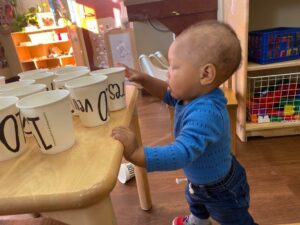
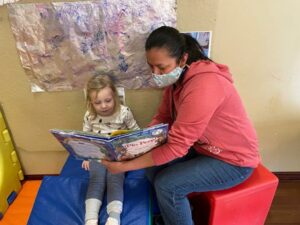

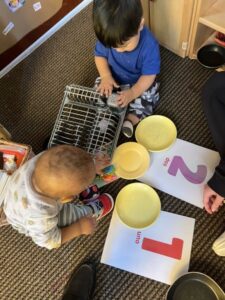
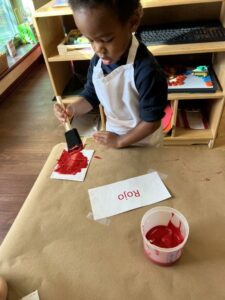

Footer
Schoenbaum Family Center and Crane Center for Early Childhood Research and Policy
Building opportunities for all young children to learn and thrive through policy, practice, research, and evaluation.
Click on the logo below to visit the website of our research partner the Crane Center for Early Childhood Research and Policy.

